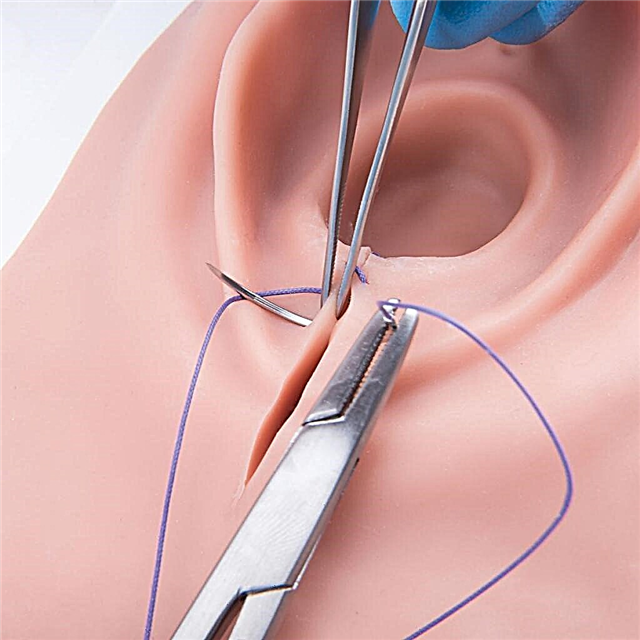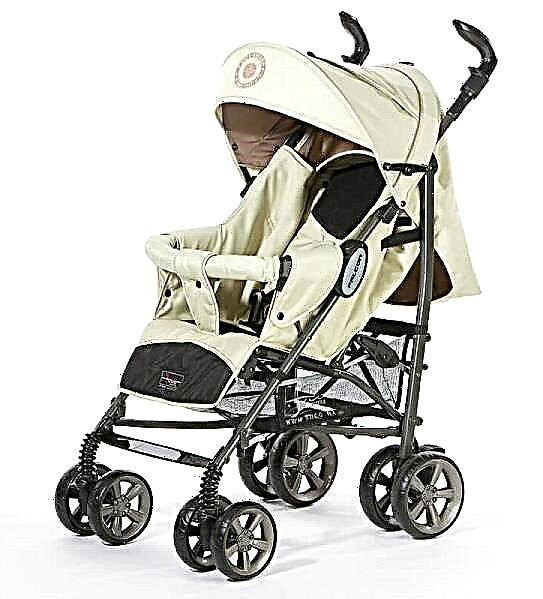Restless baby sleep is a common problem in almost every family. When the baby is very small, he may not wake up every hour, and sometimes does not bother the parents at all during the rest. However, when a child of 4 months does not sleep well at night, starts constantly tossing and turning, wriggling and spinning when laying down, the mother does not know what to do, and why it could suddenly become so. Frequent waking up of a four-month-old baby, not only at night, but also during the day, is natural and disappears in a short time.

4 months - the period when the baby often falls asleep in her mother's arms
Bad sleep of a 4 month old baby
Not all moms and dads know the reasons for the constant sleepless nights when the baby starts crying if it happens to wake up. He may not stop screaming, worrying, flinching. Sometimes even the guards do not save, you have to rock the baby, calm him down in order to help him fully relax and sleep at least several hours in a row.
A sudden change in the usual routine scares and alarms adults. This can happen due to the onset of the illness, when the symptoms are not yet so obvious, and after a day that is too emotional for emotions.

Sleepless nights are extremely hard for mom
Note! Poor sleep can be associated with an ill-conceived schedule of the day, which most often happens. The kid sleeps too much during the day, wants to play and communicate with his parents at night.
The baby may be cold, hot, he has eaten too much, the tummy hurts, so he wakes up and screams. Up to four months, the baby suffers from colic, after sleepless nights, teething is accompanied.
Sleep deficiency is dangerous for the child's body and the development of the baby. Organs and systems are imbalanced, the baby lacks most of the enzymes and hormones that are produced during the rest. A child at this age should sleep at least 16-18 hours a day.
Causes of frequent waking up
At 3-4 months, hormonal changes occur in the body, which helps with the subsequent development of the child. During this period or after the past regression, a growth spurt occurs.
The main reasons for frequent waking up:
- the nervous system has matured, the work of connections to master new skills is intensifying;
- the baby's mobility is increased, he moves more, actively learns new skills, turns over;

The baby learns to roll over
- the load on the nervous system is serious - during the day and before bedtime, the child works out skills, sometimes the processes continue even in sleep;
- the structure of sleep has changed, it is no longer so chaotic, it becomes more cyclical, includes slow sleep, however, between its phases, the baby cannot fall asleep on its own, the mother's help is required;
- the baby becomes more sensitive to sleep conditions, since the production of melatonin, its own sleep hormone, is triggered;
- the baby realizes that the mother is a separate person, perception changes;
- in children with symptoms of serious illnesses (rickets, encephalopathy, neurological diagnoses), poor sleep is a consequence of an illness.
- early teething - it can take several weeks to months before a tooth appears.
Important! Some mothers note that the baby during this period suddenly began to push hard at night, bend. Soothes only the chest. The mother's diet should be reviewed, those foods that fix the stool should be removed. Replace packaged teas with herbal ones, drink plenty of plain clean water. If the child is bottle-fed, then the mixture changes in this situation.
Recommendations of doctors
Yevgeny Komarovsky, a well-known pediatrician, has ten rules for "healthy baby sleep":
- From the maternity hospital itself, then upon arrival home, priorities are set: the baby should know what time the whole family is resting. All households must determine the interval of night sleep: either from 21 to 5 in the morning, or from 12 in the morning to 8 in the morning. The baby should be laid at this particular time. Discipline and all established rules are respected by all family members. If in the first six months the child may need night feedings, then after that he stops asking for breast or formula at night.
Important! During this period, the baby can only fall asleep on the chest, on the arms. This is permissible with regression of sleep. However, it is better not to accustom the child to motion sickness, according to Komarovsky, after feeding him to put him in his crib.

In regression, the baby can fall asleep on the chest
- Think over completely the regime of your child: hours of walking, swimming, daytime sleep. The baby quickly gets used to the routine, and all problems disappear.
- Think about where your baby sleeps, best of all - in your own crib. Up to a year old, you can put it right in the bedroom, then it will be easier for mom to feed the baby. After a year, the pediatrician recommends moving the crib to the nursery. The doctor does not support joint sleep, believing that this way none of the family members can get enough sleep.
- This is a rule for those toddlers who "sleep in fits and starts" and wake up every half hour. They have time to rest well during the day, therefore, the daily routine should be revised. Komarovsky suggests waking up the baby during the day so that one or two hours "go away" for a night's sleep.
- The basic needs of a baby in the first year of life are sleep and food. It is necessary to find the right balance between them. As the pediatrician sees him: from birth to three months, the baby feeds 1-2 times at night, from three to six - 1 times, after six months he does not need to be fed at all at night. Of course, with on-demand feedings, this rule is sometimes difficult to enforce. Here Komarovsky recommends simply working out a clear plan: the baby eats at will, but at intervals of at least 3 hours each. If he is offered a breast for every squeak, do not be surprised that later he will wake up every 30-40 minutes and cry. Often this happens due to chronic overfeeding of the baby, since he constantly hangs on the chest.
- During the day, the child should be well tired. To do this, it is worth walking with him in the fresh air, playing games, taking into account the age of the baby, doing hardening, doing massage and gymnastics. Before going to bed, about 2 hours before going to bed, switch to a more relaxed pastime. The best sleeping pill is Mom's lullaby.
- The microclimate in the room should not be too hot, cold, humid or dry. Air temperature - 18-20 degrees, humidity - 50-70%.
Important! The room must be ventilated to keep the air clean. In winter, you can put wet towels on the radiators or put special valves that regulate the flow of heat.
- A massage before an evening swim with a water temperature of no higher than 32 degrees is a guarantee of a good appetite and sound healthy sleep.
- The mattress on which the child sleeps affects the quality of rest. It must be tough and made from natural ingredients. Bed linen is bought from quality material (cotton, calico), without dyes and bright colors. A baby does not need a pillow up to two years old.
- The most important of all the rules is that the baby should be dry and comfortable, the diaper should be selected individually.
Signs of sleep regression
If the baby does not fall asleep well at night at 4 months, it is likely that sleep regression has begun. What signs begin to appear:
- The kid resists laying down not only at night, but also on daytime sleep.

It's difficult for a baby to sleep
- The child does not want to sleep and fall asleep alone, he constantly requires attention and the presence of his mother.
- With the help of his chest and motion sickness, he can fall asleep, but when transferred to the crib, he wakes up and after that he can no longer sleep.
- Sleep has become very sensitive: the baby wakes up in a stroller, car, on a walk, from any extraneous noise. If earlier the sound of the mobile did not interfere with rest, now it can cause crying and crying of the baby.
- Previously, the little one slept all night like an angel, but now he began to be capricious and often wake up. Re-laying does not give any results.
- In the morning, the baby wakes up very early, at 4-5 in the morning, while at night he left after 22:00.
Additional Information. Sleep regression in premature babies can occur in proportion to the term of prematurity, for example, not in the fourth, but in the sixth month.
How to solve the problem
At night, the baby sleeps for about 10 hours. If the dream went wrong, first of all, you should track how correct the daily routine is. In most cases, the issue is resolved after improving the routine throughout the day. Other reasons may be hidden:
- in poor health of the baby;
- uncomfortable conditions of stay in the room;
- hunger or, conversely, overfeeding and pain in the tummy.
All problems with sleep are solved by normalizing the symptoms that have appeared and introducing a ritual before rest. To make it easier to get through this period, which usually lasts about two weeks, you can put the baby's crib next to the bed - so it will be easier for the mother to feed the baby without getting up from her seat.

For mom to get enough sleep, it is better to put the crib next to the bed.
Evening rituals:
- walk;
- calm games;
- bathing;
- massage that will relax;
- feeding.
The baby will quickly get used to them, will remember that after them a dream comes, so it will stop spinning, spinning, being capricious in the crib.
Note! The baby's sleeping place should be comfortable and cozy. It is placed away from windows and heating appliances. It is advisable to hang blackout curtains on the windows. Ventilate the room before going to bed.
Sometimes a child at 4 months sleeps poorly, not only at night, but also during the day. At this age, the baby rests 3-4 times during the day, staying awake for two hours between each sleep.
The most common mistake why a baby cannot be put to bed is the signal the mother missed that the baby was tired.
You should start observing your child, paying attention to the signs:
- the baby begins to rub his eyes;
- yawns constantly;
- activity fades away;
- no interest in toys.
If you put him to bed at the right time, he will fall asleep quickly and without any resistance. It is advisable to draw the curtains so that the hormone melatonin begins to be produced.
Important! In the first 20-30 minutes, the mother should be close to the baby, observing complete silence - this way he will seamlessly enter the deep sleep phase and sleep soundly.

The baby needs a mother nearby to teach him not to wake up when the sleep phase transitions
What should parents do if a child falls asleep badly and for a long time at 4 months:
- Retire for 2-3 weeks. This means not going to shops, restaurants, creating a calm, serene atmosphere at home for yourself and your child. There should be as few external impressions as possible.
- Introduce pre-lay rituals. The nervous system should relax, not enter a state of excitement.
- Review sleep patterns and waking hours. At 4 months, the norms change, so it is not worth laying the crumbs according to the rules as a two or three month old baby. Due to a significant growth spurt, the toddler is undergoing global changes. He just may not want to sleep when they decided to put him to bed.
- Increase physical activity, engage in more active games with him.
- If the kid confused day and night, then you have to arm yourself with patience and perseverance. In the afternoon, wake up the baby and start playing. It's difficult, but within a week, sleep will return to normal.
- Observe how the child sleeps, in what position. If he tilts his head back, he may have high intracranial pressure, he should be examined. When flinching in a dream, it is necessary to check the baby for a deficiency of calcium and vitamin D. If the baby is resting with half-open eyelids, this indicates excessive nervous excitability.
Note! Do not give your child tranquilizers or sleeping pills. After consulting a pediatrician, it is permissible to give decoctions of motherwort, valerian or mint.
- If the baby sleeps on his tummy, as Komarovsky says, this is not a cause for worry. In some cases, this posture, on the contrary, promotes quality sleep and better digestion.
- Sleepless nights arise from the fact that atmospheric pressure jumps, the weather has changed, a thunderstorm is raging outside the window. Children are very meteosensitive, so they may not sleep during this period.
- Give your child more affection, attention and care at this time. He undergoes big changes inside, the emotional spectrum and awareness of the world around him expand. There is a strong anxiety, anxiety, so the baby needs additional care and love.

During this period, the child needs attention and care.
All problems should be solved in a complex, individual approach. Each child has its own character and temperament. Sleep regression is an age crisis that will not last long, it is worth having patience and knowledge about this age interval. In a few weeks, the situation will improve, and everything will sparkle with brighter colors.
Remember! The growth of the baby is inevitable, mother's love and affection will give the baby more peace and tranquility to go through this difficult period for him with ease.



